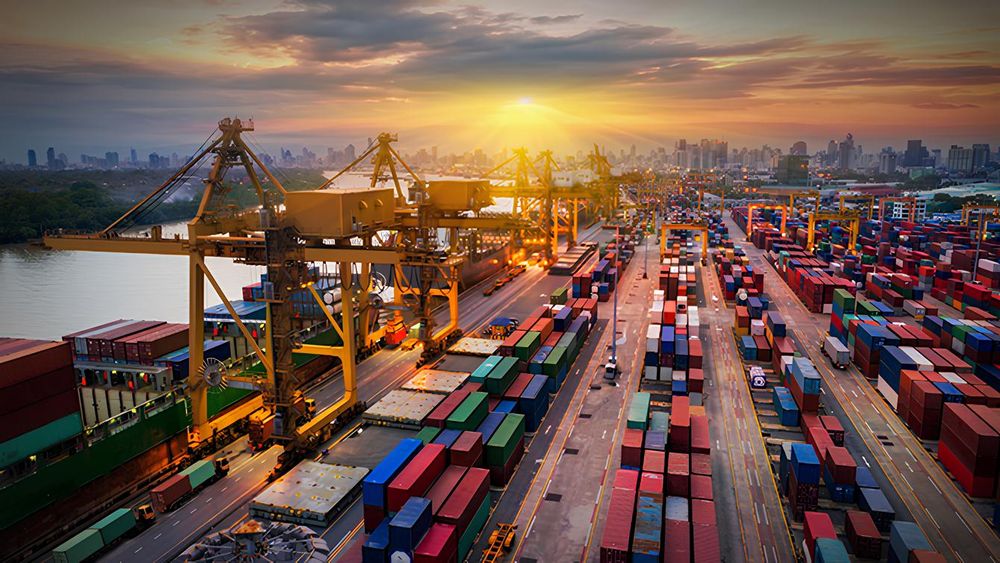
Trade
Navigating Global Trade: A Guide to International Business, Importing, and Exporting
Unlock the secrets of international trade with our in-depth guide. Explore the intricacies of importing, exporting, and global business strategies to boost your economic growth and market presence
By India Index
7 minutes read
Introduction
International trade has been a cornerstone of the global economy, connecting nations, businesses, and people. It involves the import and export of goods and services, creating a complex web of exchanges that drive economic growth, cultural change, and the overall well-being of nations. As this process continuously evolves, understanding the intricacies of international trade is crucial. This guide delves into the world of international trade, exploring its significance, advantages, and limitations.
What is International Trade?
International trade allows countries to export their goods to generate revenue and promote economic growth. It also enables them to obtain goods and services that might be unavailable or more costly to produce domestically. According to the World Trade Organization (WTO), annual goods trade growth is expected to accelerate to 3.2% in 2024, slightly down from an earlier prediction of 3.3%.
Key components of international trade include:
- Exporting: Selling goods and services produced in one country to another. This can range from manufactured goods and raw materials to services like consulting or software development.
- Importing: Buying or consuming products or services from another country, providing access to a diverse array of products.
- Balance of Trade: The difference between a nation's imports and exports. A trade surplus occurs when exports exceed imports, while a trade deficit happens when imports surpass exports.
- Tariffs and Trade Barriers: Governments may impose tariffs to protect domestic industries or regulate the flow of goods and services.
- Free Trade Agreements: These agreements between countries reduce trade barriers, fostering a more open trade environment.
- Foreign Exchange Markets: Currency exchange is a critical aspect of international trade, affecting the cost of goods and services traded.
- Trade Organizations: Entities like the WTO and regional blocs like the European Union (EU) play significant roles in regulating and promoting international trade.
International trade offers numerous advantages, including economic growth, a broader range of consumer options, access to resources and technology, and opportunities for businesses to expand into new markets. It also encourages cultural exchange and international cooperation. However, it can lead to trade imbalances, protectionism, and disputes over trade policies, necessitating diplomatic and economic negotiations. Overall, international commerce is a dynamic and essential part of the global economy, influencing the prosperity and well-being of nations worldwide.
Advantages of International Trade
International trade provides several benefits for countries, businesses, and consumers:
- Enhanced Financial Performance: Businesses engaged in international trade can improve their financial success by extending the commercial lifespan of products and services through global markets. This allows for greater returns on research and development efforts.
- Specialization: Countries can specialize in producing specific goods and services based on their natural resources, labor, technology, and capital. This leads to large-scale production to meet domestic and international demands and the accumulation of foreign exchange reserves.
- Risk Distribution: International trade enables businesses to diversify and protect themselves against risks such as economic downturns or natural disasters. Global trading can help maintain stability even when the domestic market is volatile.
- Favorable Exchange Rates: Companies can lower their risk by taking advantage of favorable monetary exchange rates. This can enhance profitability when trading with countries using different currencies.
- Development of Transport and Communication: Effective international trade relies on robust transportation and communication systems. Governments often improve infrastructure to facilitate the exchange of goods and services, boosting trade efficiency.
While international trade has many benefits, it also poses challenges, such as trade imbalances, job relocation, and economic vulnerability during global crises. The benefits are not evenly distributed, and some individuals and businesses may suffer as a result. Balancing these benefits and addressing the challenges is a critical task for governments and policymakers.
Limitations of International Trade
Despite its advantages, international trade faces several limitations and challenges:
- Economic Reliance: Underdeveloped countries often rely on developed nations for economic progress, which can lead to exploitation. These countries may trade primary commodities for manufactured goods, resulting in poor living standards and potential instability.
- Widening Trade Divide: The benefits of trade are not evenly distributed. Developing countries often face trade imbalances, with a significant gap between their imports and exports. This can lead to discontent and agitation among the population.
- Political Risks: Political instability and policy changes in different countries pose risks to international trade. Governments may enact discriminatory laws or regulations affecting specific industries or groups.
- Exchange Rate Fluctuations: Exchange rates in emerging markets can be volatile, complicating financial forecasting and affecting competitiveness. Valuing assets and liabilities in foreign currencies can lead to significant revenue losses.
- Credit Risks: Nonpayment is a significant risk in international trade. While insurance and letters of credit can mitigate this risk, understanding the credit landscape of foreign markets is essential for successful trade operations.
Conclusion
International trade is crucial for economic growth and cultural exchange, fostering global interconnectedness. It transcends borders, uniting nations and people. However, trade comes with its own set of challenges and restrictions. These challenges present opportunities for innovation and sustainable growth. Exploring the role of countries like India in international trade can provide insights into shaping the future in a globalized world.
Learn more about India's role in international trade and how the nation can shape its future in a globalized world with India Index.
Was this article helpful? 💡
View Similar Articles
Understanding Currency Exchange and Its Impact on Export Pricing Amid Trade Wars
India Index
The Benefits of Export Training and Certification Programs in a Changing Trade Landscape
India Index
Effective Inventory Management for Export-Oriented Businesses to Mitigate Tariff Impacts
India Index